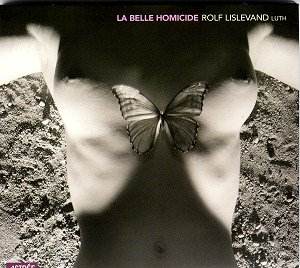Award
wining soloist Rolf Lislevand using a eleven-course baroque lute
gives a revelatory recital of unaccompanied seventeenth century
French lute music on the Astrée Naïve label. Lislevand
states in the booklet notes that probably never since the period
when this lute music was written has such beautiful music been
performed by so few people. His sentiments are pretty accurate
and I cannot understand why such wonderful music has been ignored
for so long.
The
popularity of the lute began to fade as the popularity of the
violin increased and the lute became virtually obsolete with the
advent of the pianoforte. The last great lute composers were J.S.
Bach who significantly composed several lute suites and Handel
who was utilising lute parts in his last opera Deidamia
in 1741.
These
compositions are successfully written for the most part in the
style of short dances and grouped together in sets or suites.
The characteristic fashion of the time of labelling each piece
with a poetic or descriptive designation is used although the
titles bear little or no resemblance to their character and expression.
‘La Belle Homicide’ the title of this Astrée Naïve
release uses the name given by composer Denis Gaultier ‘de Paris’
to one of his works which was one of the most popular of the period.
Lislevand
uses the manuscript of lute works from seven different French
composers compiled by Barbe which is in itself a guarantee of
the quality of the selected works. They are not arranged in any
particular manner other than their common mode and tonality. Barbe
was not afraid to join several of the pieces together by different
composers into a more continuous work. To me, a non lute player,
the seven French composers sound remarkably similar in style and
owing, I guess, to the way that they are phrased I observed that
it was virtually impossible for me to sense what notes were coming
next.
If
the listener has not read the explanation in the booklet notes
it can come as a shock to hear several seconds of animal, bird
and reptile calls at the beginning of three of the pieces. We
are informed by the soloist that the recording sessions were undertaken
in Maguelone Abbey in France at night and the nature sounds were
left to provide atmosphere to the proceedings. Furthermore, for
reasons of spontaneity and realism, some of Lislevand’s instrumental
tuning and experimentation made during the recording sessions
have not been edited out as can be heard on track 11 between points
1:44-1:52.
In
the informative yet rather high-brow booklet notes lutenist Lislevand
discusses how he finds the term ‘historical authentic performance
practice’ now to be burnt-out and states that a new term ‘historical
perception practice’ has arisen from the ashes, which explains
what a performer desires to attain, subscribing to a specific
attitude and belief. Somehow this all seems rather pretentious!
I must say just how much I love the packaging of this Astrée
Naïve release, in particularly the imaginative art work.
The
lute playing is exceptionally fluent and the phrasing is perfectly
judged with a sense of real involvement and empathy for the works.
Through Rolf Lislevand’s amazing playing of these excellent compositions
and near perfect acoustics this release was a revelation to me
and touched my emotions in a most unique way leaving me with a
remarkable sense of spirituality that I have never previously
experienced with any recording.
The
sound quality is in demonstration class and I could easily imagine
being alongside the lutenist during the actual night recording
session. I urge listeners who wouldn’t normally purchase a recital
of lute works to hear this superlative recording.
Michael
Cookson

